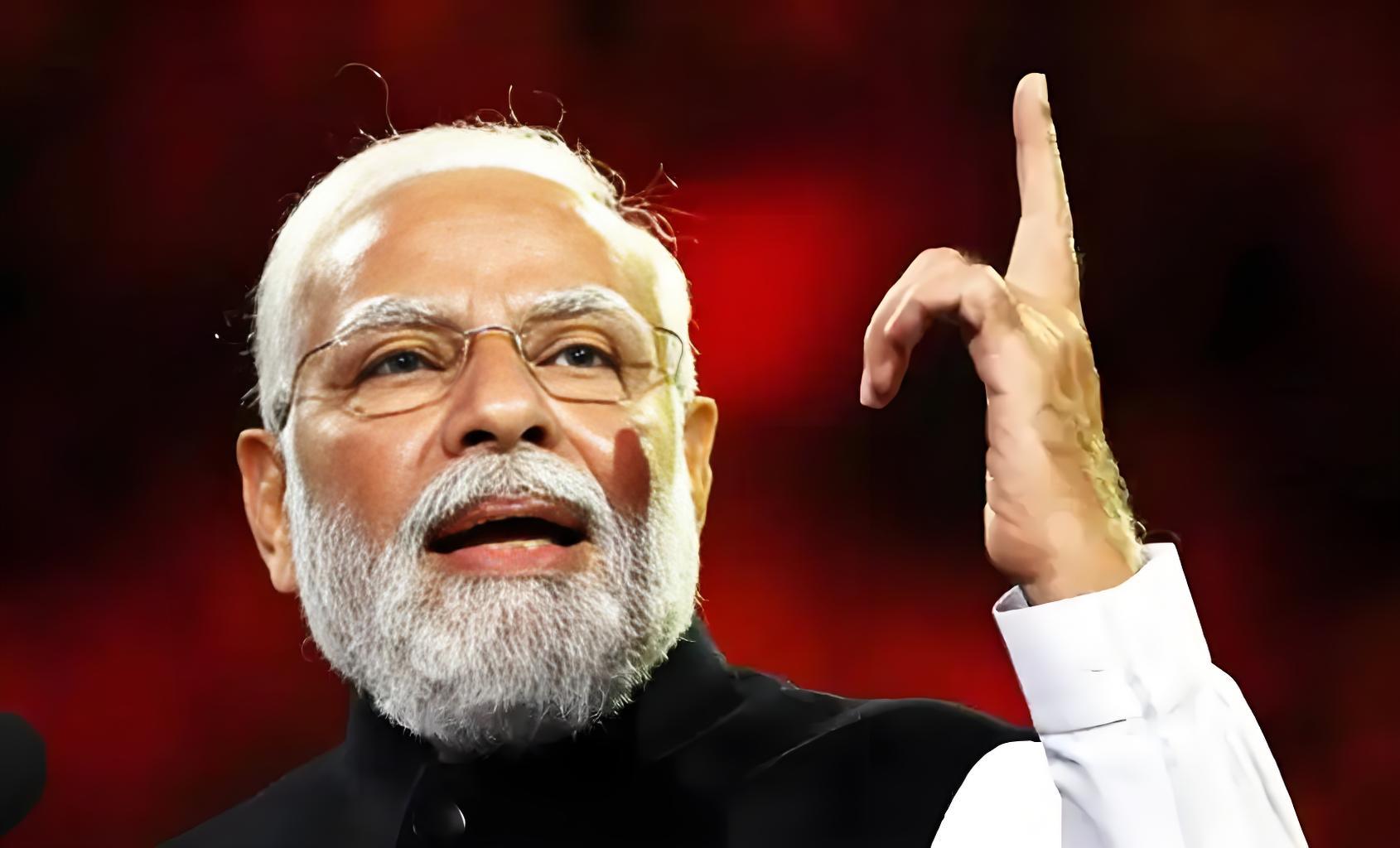
Recently, the tensions between India and Pakistan have escalated sharply. This geopolitical conflict is like a ferocious storm, causing extremely serious impacts on multiple aspects of the Indian economy.
In the turbulent financial market, the exchange rate of the Indian rupee against the US dollar has plummeted like a free fall. It has dropped by 1.1% and quickly reached 85.7913, setting the largest decline since February 2022. The Indian stock market has also not been able to stay immune from this storm. The benchmark Nifty 50 index has fallen by 0.7% like a kite with a broken string, marking the largest decline since April 25. The Indian rupee has always been a currency highly sensitive to external factors. Under the shadow of the tense situation, the risk aversion of investors has soared instantaneously. They are like birds startled by the bowstring, frantically selling Indian assets, putting unprecedented and enormous pressure on the rupee. The significant decline in the stock market has set numerous obstacles on the financing path of enterprises, making it extremely difficult for enterprises to raise funds. This undoubtedly further affects the stable development of the real economy.
The trade field has also not been able to escape the clutches of this crisis. The deterioration of the relationship between India and Pakistan has brought their trade exchanges to a standstill. Pakistan has resolutely suspended trade with India, directly cutting off the export channels of some Indian commodities. Take India's reactive dyes as an example. Originally, 40% of the reactive dyes relied on Pakistan for transshipment and export to Europe. Now, this crucial trade channel has been completely blocked, with a large amount of goods piled up in warehouses. Relevant enterprises have fallen into a desperate situation. Not only are they facing huge economic losses, but they also have to spend a great deal of time and energy looking for new export routes. In addition, the relevant cooperation projects of the South Asian Association for Regional Cooperation (SAARC) have been forced to come to a halt due to this conflict. The economic growth rate of the South Asian region has been pulled down by 1.5 percentage points by an invisible hand, and the external environment for the development of the Indian economy has significantly deteriorated, making the future development path more and more rugged.
From the perspective of the industrial level, both the manufacturing and agricultural industries have suffered heavy blows to varying degrees. The outsourcing services in the conflict area of Kashmir have been interrupted, which is like a bolt from the blue for relevant enterprises. For example, the automated production processes of pharmaceutical intermediate enterprises in Bangalore have been severely affected, and the capacity utilization rate has sharply dropped to below 70%. The delay in order delivery not only exposes enterprises to the risk of default but also may cause them to lose long-accumulated customer resources, with immeasurable losses. In the agricultural aspect, India's closure of the Attari land port has hindered the export of Pakistani agricultural products, and the income of Pakistani farmers has been greatly reduced, plunging their lives into a difficult situation. The agricultural production in India itself has also not been spared. The rise in food prices not only affects the daily lives of the people but also poses a serious threat to India's food security.
The energy market has also not been able to stay out of this conflict. India relies on imports for 85% of its crude oil, and its main transportation routes need to pass through the Strait of Hormuz. After the outbreak of the conflict, the daily flow of oil tankers passing through the strait has decreased by 12%, and many oil tankers have been forced to detour around the Cape of Good Hope, extending the transportation cycle of crude oil from the Middle East to India by 15 - 20 days. The supply in the spot market has been tightened periodically, and the oil price has skyrocketed like a rocket. For downstream enterprises that rely on crude oil, the cost has increased significantly, and the profit margin has been severely compressed. Many enterprises are even facing a survival crisis. India's "Eastward Energy Corridor" plan, which it has been promoting, has also been hindered due to the conflict, and the construction of the planned offshore oil pipeline may be indefinitely postponed, posing a huge obstacle to India's energy strategic layout.
The regional development has also been severely restricted. The flames of the conflict have caused serious damage to the infrastructure. The roads are full of potholes, the bridges are crumbling, and the ports are unable to operate normally. The lives of the local people have been thrown into chaos, and the economic development has come to a standstill. Both countries have invested a large amount of funds in strengthening their military forces. These funds, which could have been used to improve people's livelihoods and build infrastructure, have been squeezed, severely restricting the healthy development of the Indian economy and making India carry a heavy burden on its economic development path.
The escalation of the tensions between India and Pakistan has had a comprehensive and far-reaching impact on the Indian economy. If the tense situation continues or further deteriorates, the Indian economy will face even greater challenges and may even fall into a deeper predicament. The international community generally calls on both sides to exercise restraint and resolve disputes through peaceful negotiations to ease the regional tension and restore the stable development of the economy. For India, how to stabilize the economy and reduce the negative impacts brought about by the conflict under the current situation has become an important issue that needs to be addressed urgently, which is related to the future direction of the Indian economy and the well-being of countless people.

報告顯示,中國電力投資加速增長,預計2024年電網基建投資將超過5300億元。
近日,市場迎來了一則引人注目的消息:工業巨頭3M公司(MMM.N)在本周五公布了其季度業績報告,隨後股價飆升至近兩年來的
最近,外媒給OpenAI算了筆賬,今年可能要血虧50億美元。
近日,巴黎奧運會和世界鐵人三項協會聯合發布了一項重大決定,宣布因塞納河水質污染問題,原定於近期進行的奧運會鐵人三項首次下
當地時間7月18日,法國巴黎發生了一起令人震驚的持刀襲警事件。
近期,一則重大消息在國際舞臺上引起軒然大波,馬來西亞宣布加入金磚國家。
調查發現,互聯網和智能手機的使用幹擾了韓國近五分之一學生的生活。